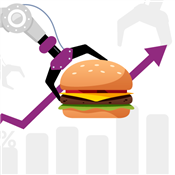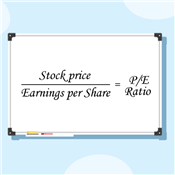How to Cash Out a 401k
The money in a 401(k) is your money, but you can't touch it until you are 59½ and no longer work for the same employer. What if you need the funds? Can you cash them out?
 |
| © CreditDonkey |
The IRS and many 401(k) administrators have strict rules regarding 401(k) withdrawals. Even though it's your money, you put it aside for retirement and the IRS will do what they can to make sure it stays there, at least until you are of age.
Keep reading to learn how you can cash out a 401(k) and if it makes sense to do so.
When Can You Cash Out Your 401(k)?
There are two occasions when you can cash out your 401(k):
- When you leave your employer.
- When you reach age 59½ and no longer work for the sponsoring employer.
The bigger question is should you cash out your 401(k) in either of these circumstances? You'll want to give it careful thought.
When you leave your old employer, you have the option to cash out your 401(k). This means you'll receive a check in the mail. It won't be the full amount of your vested funds, though. You'll face penalties (from the administrator and IRS) as well as taxes. You can avoid this by rolling the funds over into another 401(k) or other qualified retirement plan, such as an IRA.
If you are still working for your employer, you cannot withdraw your 401(k) funds, even if you turn 59½. This is true unless you meet the requirements for a hardship withdrawal. Some employers offer this option, but not all do. Talk with your HR department to see if your company offers it.
A hardship withdrawal means that you can demonstrate an immediate need for funds, which according to the IRA may occur due to the following:
- Immediate medical care expenses of the employee or qualified dependent.
- Money needed for the purchase of a primary residence.
- Money needed for postsecondary education, including tuition and room/board for the employee or qualified dependent.
- Money needed to prevent foreclosure of, or eviction from, the primary residence.
- Funeral expenses for the employee or qualified dependent.
- Money needed to fix damages that occurred to the primary residence.
Again, check with your HR department to see if your employer offers these provisions. You should also inquire what portion of your funds you can withdraw. Some employers allow you to withdraw from your regular contributions plus any matching contributions. Others may restrict you to only the funds you've contributed.
Keep in mind that this is a distribution and not a loan. In other words, you won't repay the funds. In fact, you may not be able to contribute to your 401(k) for six months or longer, depending on your plan's rules.
You can't skip paying taxes on your 401(k) contributions and earnings. The IRS catches up to you at one point or another. In fact, if you delay distribution and are 70½ or older, the IRS will impose Required Minimum Distributions on you.
In other words, the money can't sit tax deferred forever. At 70½, the IRS will determine the amount of your minimum distribution, at which point you will have to pay taxes on the income.
Cashing Out a 401(k) After Leaving Your Job
Once you leave your job, whether it's your choice or otherwise, you'll eventually need to move your 401(k). Even though you don't work for the sponsoring employer any longer, you still face the 10% penalty if you take the cash, unless you meet one of the following exceptions:
- You are at least 55 years old when you leave the job.
- You have a court order to distribute funds to a spouse or dependent child.
- You can set up substantially equal payments over your lifetime, which must be at least the next five years or you reach the age of 59½ (whichever is longer).
In many cases, you are better off rolling the 401(k) funds over to either another 401(k) with your new employer or an IRA. As long as you don't take the cash in hand, you may not face taxes or penalties for moving the money to a different account.
You might think that paying the taxes on the income isn't a big deal. You'd have to pay them at some point anyway, right? However, you also pay a 10% penalty.
Typically, 401(k) sponsors will hold back 20% of your funds to cover the taxes and penalties. If you have $20,000, you will lose a minimum of $4,000 to taxes and penalties. This only accounts for the fees the IRS charges. Your plan administrator may also charge fees for early withdrawal as well.
How to Cash Out a 401(k) While Still Employed
Unfortunately, it's difficult to cash in your 401(k) while you are employed by the sponsoring employer. This is true even if you've hit the age of 59½. If you changed employers, though, you are able to cash out your 401(k), if you are of age.
The only options you have to cash out your 401(k) if you still work for the company include:
- 401(k) Loan: You can check with your HR department to see if they allow 401(k) loans. If you need the funds, you may be able to borrow up to 50% of the vested balance, up to $50,000. You will have to pay the money back according to your plan's requirements.
- Hardship Withdrawal: If you think you qualify for a hardship withdrawal, you can inquire about this possibility with your HR department.
You aren't paying a bank - you're paying yourself. Typically, you have 5 years to pay the loan back in full. If you leave your employer before then, though, the entire remaining balance may become due and payable immediately.
Does Withdrawing Money from Your 401(k) Affect Your Taxes?
When you withdraw money from your 401(k), it's income. The IRS requires that you include it in your gross income on your tax returns.
This is the case whether you take an early withdrawal or you wait until you are of retirement age. You were able to take advantage of the tax savings by making your contributions pre-tax. Your earnings also grew tax deferred. Once you start taking distributions, though, it's time to pay taxes.
If you wait until you are of retirement age, you won't pay the 10% penalty tax. You just owe standard income taxes according to your income bracket.
How Long Does It Take to Cash Out a 401(k)?
Cashing out your 401(k) doesn't mean you'll have cash in your hand tomorrow. There's a process the administrator must go through in order to send you the money.
The plan administrator must start an account valuation first. Once they know the value, they must liquidate the investments. Sometimes this can be done the next business day and sometimes it takes a few days.
If the company charges short-term trading fees, you may want to wait until they expire before you take the funds. This could mean waiting a few weeks to as long as 3 months.
The time it takes will vary by administrator. Your plan documents should contain instructions and an estimated timeline regarding how long it should take to receive your 401(k) proceeds.
Alternatives to Cashing Out Your 401(k)
If you leave your employer and you aren't yet of retirement age, you have several options.
- Leave Your Funds in the 401(k)
- Roll Funds Into Another Qualified 401(k)
- Roll Funds Into Traditional/Roth IRA
Leave Your Funds in the 401(k): Many people don't realize that they may be able to leave the funds in the same 401(k). You won't be able to make more contributions or receive matching contributions, but you can still earn interest/dividends.
If you are comfortable with the investments, the fees are minimal, and the customer service is good, you may just want to leave well enough alone. You'll have to check with your administrator to make sure this is an option. Many plans allow it as long as you have at least $5,000 in your account.
Roll the Funds Into Another Qualified 401(k): If your new employer offers a 401(k) plan, inquire about rolling the funds over to this new account. Make sure you familiarize yourself with the plan's fees, investments, and requirements before choosing this option.
Roll the Funds Into a Traditional or Roth IRA: You can request a direct transfer of your 401(k) funds into a traditional or Roth IRA. Make sure you weigh the pros and cons of both options. A traditional IRA operates like a 401(k) with its tax-deferred savings. You may not owe any taxes if you choose the traditional IRA.
This may help you, though, if you know you'll have high taxes during retirement. You can offset some of those fees now while you are still working.
Bottom Line
The rules surrounding the 401(k) are strict. The IRS wants to make sure you have money for retirement. Cashing out these funds should be a last resort when you need funds. Losing 20% of your own invested money can amount to quite a loss. Unless the withdrawal is necessary and qualifies for a hardship withdrawal, you are better off looking at other sources for your needed income.
Write to Kim P at feedback@creditdonkey.com. Follow us on Twitter and Facebook for our latest posts.
Note: This website is made possible through financial relationships with some of the products and services mentioned on this site. We may receive compensation if you shop through links in our content. You do not have to use our links, but you help support CreditDonkey if you do.
Read Next:






